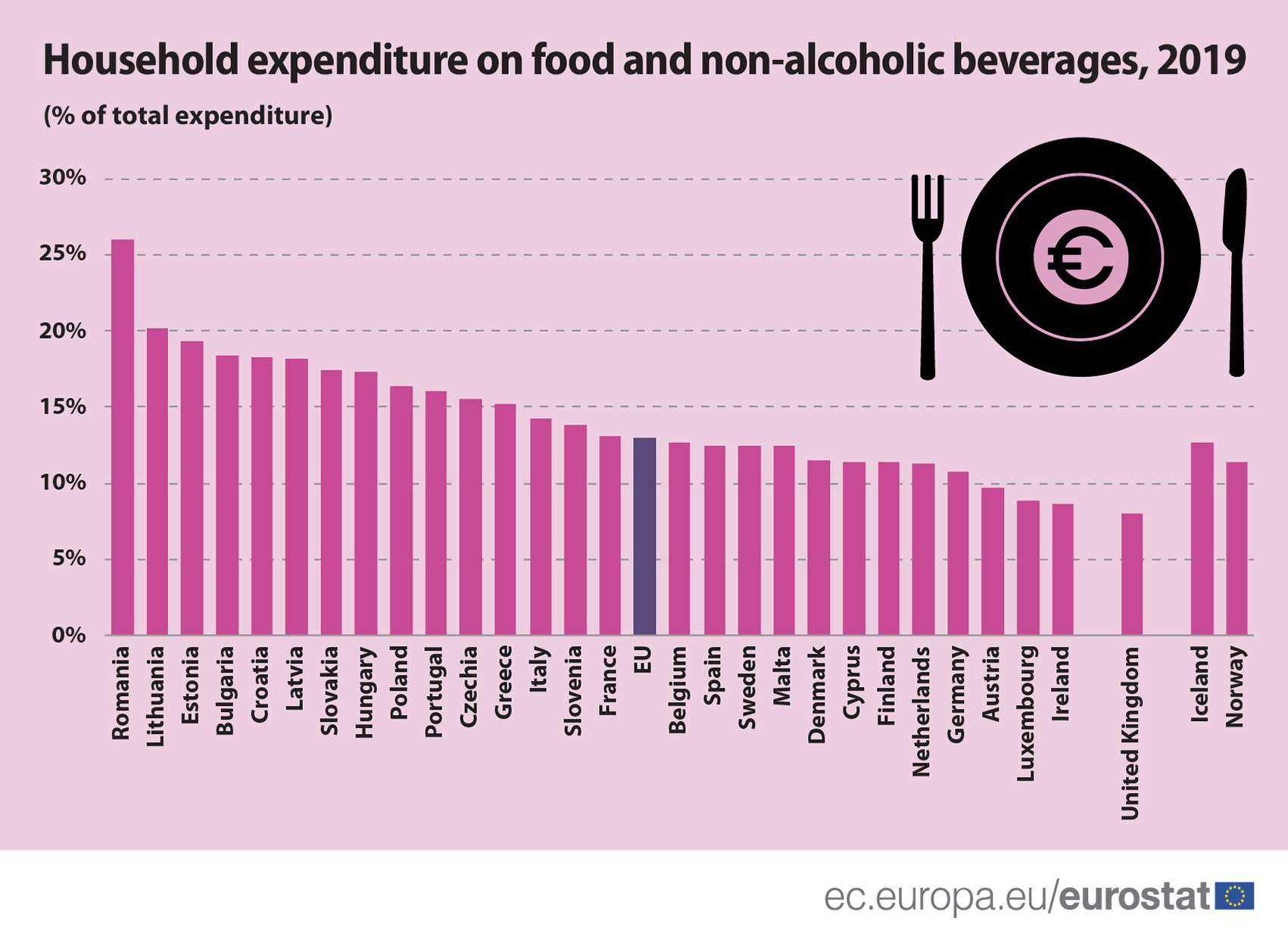In 2019, households in the EU spent over €956 bn (equivalent to 6.8% of EU GDP) on 'food and non-alcoholic beverages'.
This represents 13.0% of total consumption expenditure and ranks as the third-largest category of household expenditure after 'housing, water, electricity, gas and other fuels', which accounted for 23.5% of household expenditure, and 'transport' (13.1%).
Households in Romania spent around a fourth of total household consumption expenditure on food and non-alcoholic beverages (26.0%), followed by households in Lithuania (20.2%) and Estonia (19.3%).
Source dataset: nama_10_co3_p3
In contrast, the share of expenditure on food and non-alcoholic beverages was less than 10% in three EU Member States: Ireland (8.6%), Luxembourg (8.9%) and Austria (9.7%).
Lithuania – sharpest decline in food expenditure, Czechia and Slovakia highest increase
Between 2009 and 2019, the share of total household expenditure on food fell or remained stable in most EU Member States. The largest decrease was recorded in Lithuania (from 25.4% of total household expenditure in 2009 to 20.2% in 2019, a fall of 5.2 percentage points (pp)), followed by Malta (-3.5 pp) and Poland (-3.0 pp).
In contrast, household expenditure on food increased in seven EU Member States. The largest increase was recorded in Czechia (from 14.2% in 2009 to 15.5% in 2019, +1.3 pp), followed by Slovakia (+1.1 pp), Hungary (+0.5 pp) and the Netherlands (+0.4 pp).
Would you like to know more about household consumption expenditure?
A more complete overview, broken down by consumption purpose, is available in the Statistics Explained article and the interactive infographics.
Notes:
- This article shows the situation before the start of the COVID-19 pandemic, which might impact the 2020 data to be published next year.
- The European Union (EU) includes 27 EU Member States. The United Kingdom left the European Union on 31 January 2020. Further information is published here.
To contact us, please visit our User Support page.
For press queries, please contact our Media Support.


